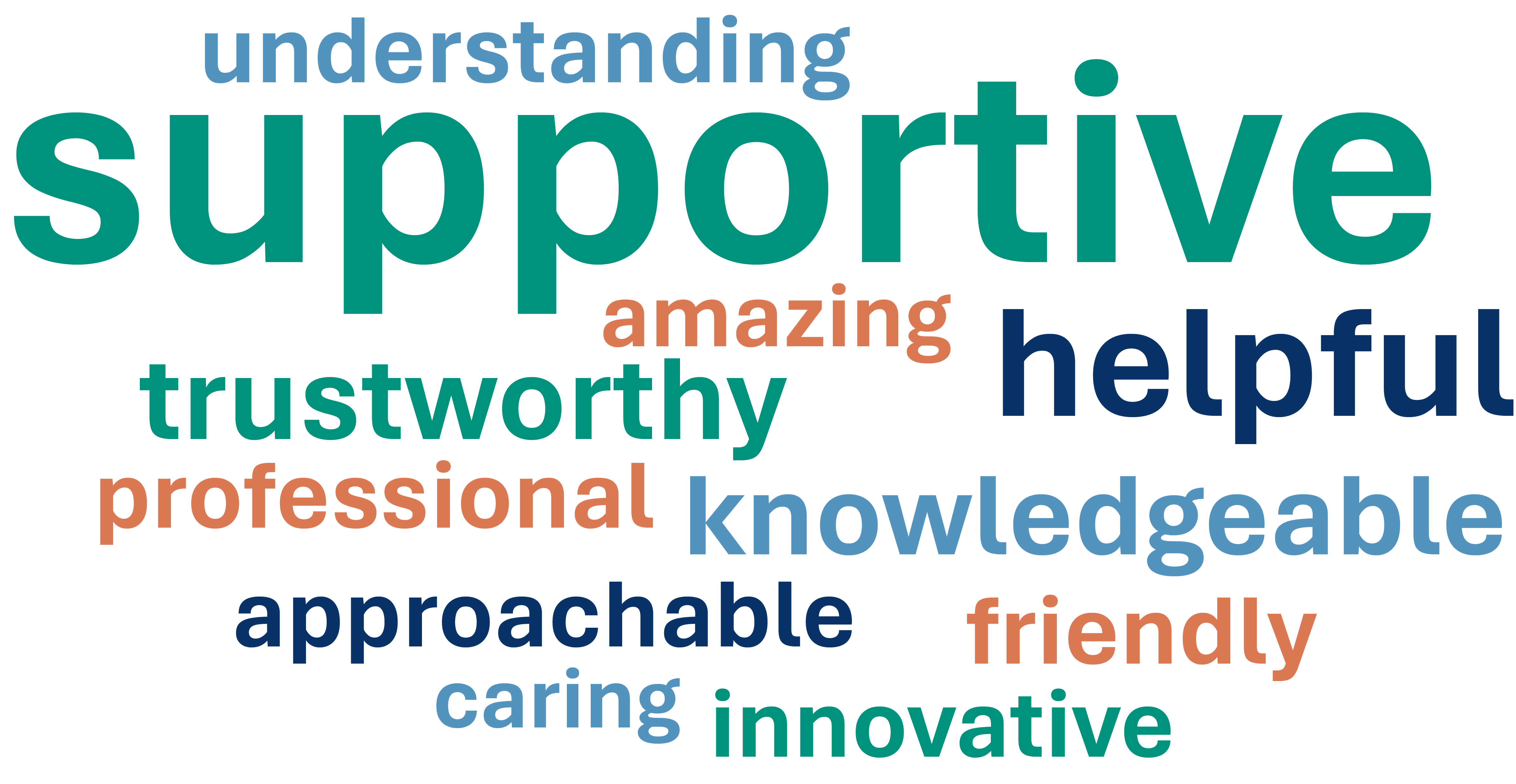We are proud of the relationships we have with our charity partners, but as a funder it can be difficult to get candid feedback on our support, especially from those who apply for funding but aren’t successful. To prevent us from marking our own homework, we’ve been working with nfpResearch since 2013 to run biannual surveys so we can hear from both successful and unsuccessful applicants and use their feedback to improve our processes. nfpResearch work with a number of other grant funding organisations and include benchmark averages so that we can see where we stack up in comparison to our peers.
In requesting feedback every two years, the survey takes stock of our entire funding journey – from the point of application to the end of a funding relationship. It also looks at the organisational development support we offer along the way. We’ve outlined how we’ve acted on previous feedback in this blog.
Our most recent survey took place at the end of 2023 and 580 charities responded. For the first time ever, we had an equal representation of responses from both charity partners and unsuccessful applicants. We are grateful to everyone who participated in the feedback survey, and you can read the full findings in the report from nfpResearch here.
Perceptions of the application process
Our application process is rated well against the benchmark average – we aim to balance accessibility with rigor, but the survey suggests that for some applicants the balance has been too demanding. After dipping in 2021, many metrics have improved other than around the speed of decision.
Both successful and unsuccessful applicants report spending more time on our application process across various stages compared to other funders, which is a cause for concern. The proportion of applicants who said they encountered barriers to accessing funding is also higher than the benchmark average. Comments from applicants suggest this may relate to changes in eligibility criteria for programmes in our new strategy, and we will actively look at how we can improve the clarity of our communication of the work we’re seeking to fund.
Overall, unsuccessful applicants are clearer on the reason for their rejection compared to the benchmark average (62% said it was ‘very or quite clear’, compared with 45% for the benchmark average). When asked if they would consider applying again, 71% of unsuccessful applicants reported ‘yes’ compared to 8% who reported ‘no’. Those who reported ‘yes’ highlighted the need for funding and the positive interactions they’ve had with Lloyds Bank Foundations in the past, while those who said ‘no’ or ‘not sure’ reported the need for an improved process or criteria changes.
Relationships with charity partners
We're delighted that nfpResearch have judged our relationships with our charity partners as continuing to be among the strongest in the sector. We are above the benchmark across all areas measured with charity partners, including overall approachability. Most notable areas include treating them as partners (85% compared to a 57% benchmark) and understanding them (82% compared to a 61% benchmark).
Charity partners have also praised:
- Excellent knowledge and support from staff / regional managers
- Additional holistic support that goes beyond just financial assistance
- Unrestricted funding, specifically over multiple years
- Trusting and collaborative approach toward grantees
We were also pleased to have positive feedback on the impact of additional organisational development support for grantees. This development support sits at the heart of our offer as a Foundation. Satisfaction levels are high, with 93% describing it as very or quite helpful.






